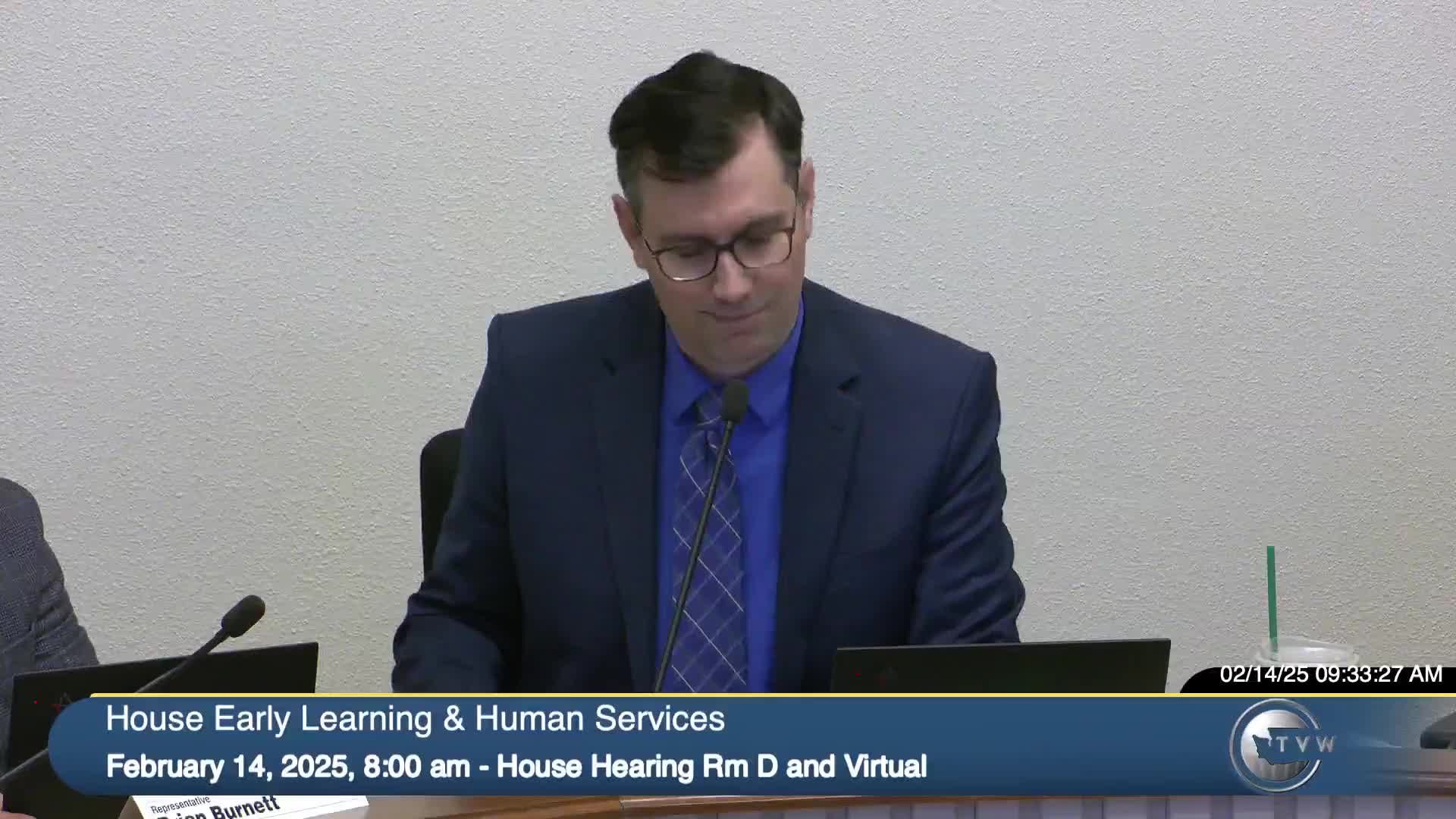Committee hears demand for restored in-person peer supports as bill would double TBI traffic‑infraction fee to $10
Get AI-powered insights, summaries, and transcripts
Subscribe
Summary
Supporters of House Bill 1848 told the Early Learning and Human Services Committee that pandemic cuts and administrative changes decimated in‑person traumatic brain injury (TBI) supports statewide; the bill would raise the fee deposited into the TBI account from $5 to $10 per traffic infraction, require a minimum 30% allocation for in‑person peer
House Bill 1848 would increase the traffic‑infraction fee deposited into Washington’s Traumatic Brain Injury (TBI) account from $5 to $10 and require that at least 30 percent of annual expenditures from the account be devoted to in‑person support groups, structured skill‑building programs, peer‑to‑peer mentoring and community integration programs, the committee was told.
Staff described the TBI account and the Washington State Traumatic Brain Injury Strategic Partnership Advisory Council’s role in coordinating a statewide plan and recommending programs eligible for account funding. The account is funded by a fee imposed on traffic infractions; funds may only be used for activities listed in the statewide TBI plan.
Representative Beth Dolio, the bill's prime sponsor, told the committee the increase would restore services lost after the pandemic and compensate for inflation and falling ticket revenue. "We fund that work...through a $5 fee on speeding tickets. In that bill we raised the fee from $2 to $5 and today I ask you to consider raising it again from 5 to 10," she said, noting DSHS had requested additional funding in a decision package that was not funded in the enacted budget.
Multiple survivors, family members, clinicians and program volunteers testified in support and described the impact of lost funding. Laura Damer White, a neuropsychologist and longtime support‑group facilitator, described in‑person meetings as essential and said many groups ceased operations after pandemic funding cuts. "Support groups need funds to reestablish groups throughout the state, to hold their meetings in safe and disability‑accessible spaces, and to purchase assistive technology equipment so that people can communicate and interact with ease," she said. Desiree Douglas, whose son sustained a severe brain injury at age 12, described the role of organized activities and programs in helping children relearn social and life skills.
The bill also requires the Department of Social and Health Services to allocate a portion of account funds to sponsor an annual statewide TBI conference and to prioritize in‑person peer engagement — explicitly directing that fund allocations should not be disproportionately allocated to virtual‑only supports. Staff told the committee that the bill would also require DSHS to pursue federal funding opportunities to supplement the account.
Committee procedure: The committee kept the bill's hearing open and heard multiple pro‑testimonies in person; committee staff said the proposed change responds to long‑running concerns that in‑person supports and conferences have been underfunded since the pandemic.
What’s next: The committee kept HB 1848 open for further testimony earlier in the day and then later indicated the hearing would remain part of the record for future consideration. No committee vote was recorded during this session.
